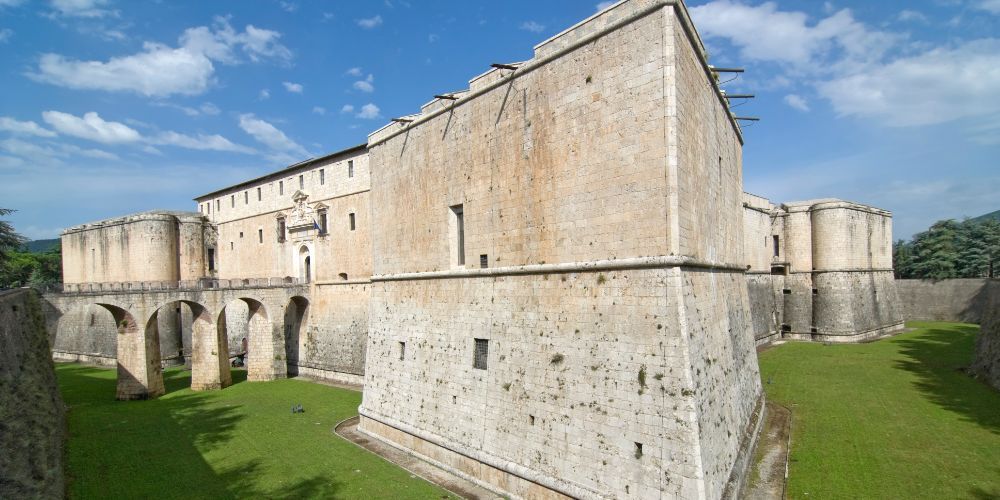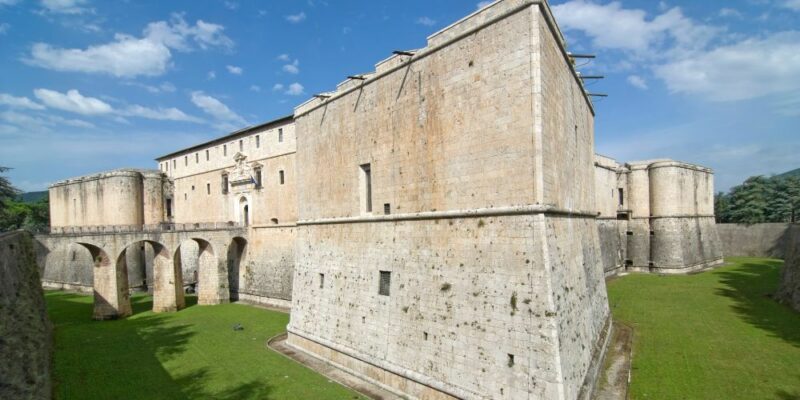
L’Aquila Chosen Italian Cultural Capital for 2026
By Nancy DeSanti

Credit: visititaly.eu
L’Aquila, the city devastated by the massive earthquake that struck the central Abruzzo region 15 years ago, has been named the Capital of Culture for 2026. Culture Minister Gennaro Sangiuliano made the announcement on March 14, 2024, during a ceremony in the Ministry in Rome.
As is customary with Italian Capital of Culture winners, L’Aquila, the capital of the Abruzzo region, will receive one million euros in government funding to carry out a project aimed at driving the cultural development of the city and its surrounding territories. The city’s proposed initiative, “L’Aquila: Multiverse City,” combines socioeconomic and artistic goals. Organizers say the initiative follows the four axes of the New European Agenda for Culture: social cohesion, public health and well-being, creativity and innovation, and socio-environmental sustainability.
The other cities in the running for the one million euros in state funding to implement the projects set out in their bid were: Agnone in the province of Isernia in the region of Molise, Alba in the province of Cuneo in the region of Piemonte, Gaeta in the province of Latina in the region of Lazio, the city of Latina which is the capital of the province of Latina in the region of Lazio, Lucera in the province of Foggia in the region of Apulia, Maratea in the province of Potenza in the region of Basilicata, the city of Rimini in the region of Emilia-Romagna, the city of Treviso which is the capital of the province of Treviso in the region of Veneto, and a union of municipalities in Valdichiana Senese in the province of Siena in the region of Tuscany.
“L’Aquila is commemorating the 15th anniversary of the event that affected not only our institutions but also our citizens,” L’Aquila Mayor Pierluigi Biondi said regarding the 6.3 magnitude earthquake on April 6, 2009. It killed 309 people in the Abruzzo regional capital and surrounding towns and villages, leaving about 1,500 people injured, and thousands more without homes. It caused billions of euros in damage to infrastructure and cultural heritage.” Being the Italian Capital of Culture is not a compensation but an element around which to rebuild the social fabric of our community,” Biondi added. “Culture is a founding element; it is the recovery of our identity and our projection into the future,” he said. “The other finalist cities will be part of this journey.” He concluded: “We guarantee that we will be up to the task assigned to us. Viva Italia!”
Earlier this year Pesaro, a city in Le Marche on the Adriatic coast, took up its status as Capitale Italiana della Cultura 2024, succeeding the northern Italian cities of Bergamo and Brescia for 2023. Previous culture capitals include Cagliari, Lecce, Perugia, Ravenna, and Siena in 2015, Mantua in 2016, Pistoia in 2017, and Palermo in 2018. The Italian title skipped a year in 2019 when Matera, in the southern Basilicata region, became the European Capital of Culture. In 2020, it was the turn of Parma to receive the culture capital status. Parma retained the title for a second year to make up for the negative effects of the Covid pandemic lockdowns. Procida, an island in the Gulf of Naples, was the title holder in 2022, while the title in 2025 will go to Agrigento in Sicily.
April 2024





